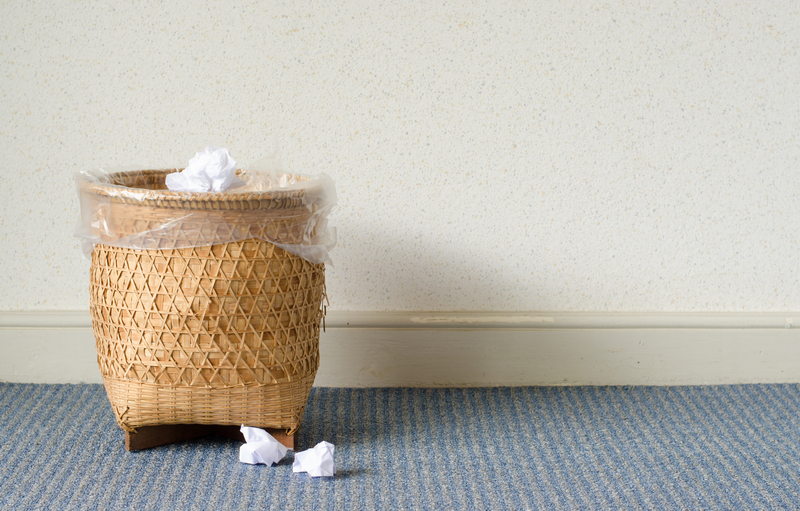Community Drives for Collecting Pots and Pans for Recycling: Making an Impact Together
Recycling is more than just a buzzword; it's an essential part of building a sustainable future. While many are familiar with recycling cans, bottles, and paper, fewer know about the potential of recycling old kitchenware. Community drives for collecting pots and pans for recycling represent an innovative and effective way to reduce landfill waste, promote environmental stewardship, and unite local residents. In this comprehensive guide, we'll explore the importance of such drives, how to organize them, and the positive ripple effects they create.

Why Focus on Pots and Pans?
Many households eventually accumulate extra cookware that's either outdated, damaged, or simply unused. Rather than letting these items take up space or end up in landfills, recycling provides a responsible alternative. Pots and pans recycling campaigns allow communities to not only declutter, but also to support metal recovery initiatives that reduce the need for new raw materials.
- Materials Matter: Pots and pans are typically made of aluminum, stainless steel, or copper--all valuable metals that can be melted down and reused.
- Environmental Impact: Metal production from raw ore is energy-intensive and polluting. Recycling kitchenware drastically cuts emissions and energy use.
- Reducing Landfill: Many cookware items are not biodegradable and persist in landfills for years, further polluting the environment.
By focusing on collecting old pots and pans for recycling, communities take a direct step towards sustainability and environmental health.
How Do Community Recycling Drives for Pots and Pans Work?
A community recycling drive is an organized event where residents bring unwanted items--in this case, old pots, pans, and other kitchenware--for collection and proper recycling. These events are usually spearheaded by local environmental groups, municipal authorities, schools, or neighborhood associations.
The Basic Steps Involved
- Planning: Identify local recyclers or scrap metal facilities that accept cookware. Set a date and location for the event.
- Promotion: Use flyers, social media, and local newsletters to spread the word, emphasizing the environmental benefits and logistical details.
- Collection: Set up dedicated drop-off points where residents can leave their pots and pans. Provide guidance on acceptable items (e.g., what materials are accepted, condition, etc.).
- Transportation: Safely deliver the collected cookware to the recycling center or designated scrap facility.
- Reporting: Celebrate achievements by sharing how much metal was collected and recycled, and recognizing community contributors.
These steps might seem straightforward, but they require careful coordination, community engagement, and follow-through to ensure a successful outcome.
What Types of Pots and Pans Can Be Recycled?
Understanding which types of cookware are suitable for recycling is essential. Not all kitchenware is created equal. Collect pots and pans for recycling according to the following guidelines:
- Aluminum Pans: Lightweight and rust-resistant, often accepted by most metal recyclers.
- Stainless Steel Pots: Durable and valuable, perfect for metal scrap programs.
- Copper Cookware: Highly valued due to the price of copper, but may need to be separated from other metals.
- Cast Iron: Heavy and dense, can typically be recycled, though check with specific facilities.
- Nonstick Pans: Some recycling centers accept nonstick pans if coatings are removed; always verify with your facility.
Check for plastic, wooden, rubber, or glass components on handles and lids--these may need to be removed before dropping off items for recycling.
Kitchenware That Usually Can't Be Recycled
- Pots and pans with plastic or wooden handles that cannot be disassembled.
- Cookware with glass lids that is not separated from the metal base.
- Items with heavy nonstick coatings or toxins not accepted by your local recycler.
Always refer to your local recycler's guidelines when preparing items for a pots and pans recycling drive.
Planning and Hosting a Pots and Pans Collection Drive
Ready to organize your own community pots and pans collection day? Here's an actionable roadmap to ensure your event is a success from start to finish.
Step 1: Connect with Local Recycling Partners
Reach out to area recycling centers and scrap yards to confirm they accept the types of kitchenware you plan to collect. Ask about their processes and any requirements for drop-off.
Step 2: Set Up a Logistics Team
- Assign roles such as event coordinator, volunteer recruiter, and publicity manager.
- Choose safe, accessible locations for drop-offs (schools, community centers, local parks).
- Arrange for collection bins, signage, and transportation vehicles if needed.
Step 3: Get the Word Out
Promotion is key to successful pots and pans donation events. Leverage these channels:
- Community bulletins and newsletters
- Social media platforms
- Email groups and school announcements
- Local newspaper ads or radio spots
Tip: Make your messaging clear--explain what types of cookware are accepted, why recycling matters, and how participation strengthens the community.
Step 4: Host the Event
- Set up labeled drop-off bins and provide instructions at the site.
- Offer assistance to people dropping off heavy items.
- Collect contact information for participants who want updates or recognition.
Step 5: Deliver Items Responsibly
Transport the collected pots and pans to the recycling partner. Ensure all items are safely delivered and accounted for.
Step 6: Celebrate and Educate
- Share results--total weight of metal recycled, landfill diversion stats, and any proceeds donated to community initiatives.
- Thank all participants, volunteers, and partners publicly.
- Use the opportunity to encourage further eco-friendly actions in your neighborhood.
Benefits of Community Pot and Pan Recycling Drives
Launching a local cookware recycling campaign delivers significant, measurable benefits:
- Environmental Protection: Recycling metal cookware means fewer raw resources are mined, reducing pollution and landscape destruction.
- Landfill Diversion: Every pot collected is one less item sitting in a landfill, leaching chemicals and taking up space.
- Resource Conservation: Recycled metals use 60-95% less energy than new metals, conserving natural resources for future generations.
- Community Involvement: Drives bring people together with a shared cause, enhancing neighborhood bonds and civic pride.
- Education and Awareness: Participants learn about waste reduction, proper recycling methods, and how small actions add up.
Overcoming Common Challenges
While the concept of community drives for cookware recycling is straightforward, you may encounter some hurdles:
- Miscommunication: Residents may not know what is or isn't accepted. Combat this with detailed flyers and on-site volunteers to guide them.
- Transportation: Bulky or heavy pots and pans might be difficult to move. Offer assistance, and coordinate pick-up services for those unable to deliver items themselves.
- Low Awareness: Start education and promotions well ahead of the event, using multiple communication channels.
With proper preparation and persistent outreach, these challenges can be minimized.
Going Beyond Recycling: Upcycling and Reuse Opportunities
Recycling drives for pots and pans don't have to end at the scrap yard. Consider incorporating upcycling and reuse initiatives:
- Community Art Projects: Old cookware can be transformed into unique sculptures or garden art.
- Charitable Donations: Usable items can be directed to food banks, shelters, or start-up chefs in need of affordable supplies.
- DIY Workshops: Teach residents how to repurpose or refurbish old pots for new uses around the home or garden.
Encouraging creative reuse extends the lifecycle of materials and further reduces waste.
Success Stories: Inspiring Examples Across the Globe
Communities everywhere are embracing the concept of pots and pans recycling drives as part of broader sustainability efforts.
- Toronto, Canada: The city's annual "Kitchenware Collection Week" sees thousands of pounds of metal cookware diverted from landfill and repurposed, with proceeds benefiting local charities.
- Seattle, USA: Neighborhood associations host "Declutter and Donate" events focusing on gently used household items, including cookware, ensuring reusability comes first, recycling second.
- Melbourne, Australia: Schools collaborate with scrap metal firms to raise funds through cookware collections, turning environmental initiatives into educational opportunities for students.
These successful efforts highlight the power and scalability of community cookware collection drives when local groups work together with energy and vision.

How You Can Get Involved
Whether you're an individual resident, part of a school, or a local business, you can help champion pots and pans recycling drives in your area. Here's how:
- Participate in upcoming drives--donate your unused pots and pans.
- Volunteer to organize, promote, or transport items for a local collection event.
- Advocate for regular kitchenware recycling days in your community.
- Educate your friends and neighbors about the value and process of recycling cookware.
Conclusion: Supporting Sustainability, One Pan at a Time
Community drives for collecting pots and pans for recycling are simple yet powerful tools for fostering environmental responsibility and unity. By bringing together neighbors, diverting valuable metals from landfills, and spreading awareness, these events offer meaningful, long-lasting benefits. Start organizing a cookware recycling drive in your community today, and join the movement towards a cleaner, greener, and more sustainable future!
Have you hosted or participated in a pots and pans recycling event? Share your story or tips in the comments below--let's inspire others to take action!
